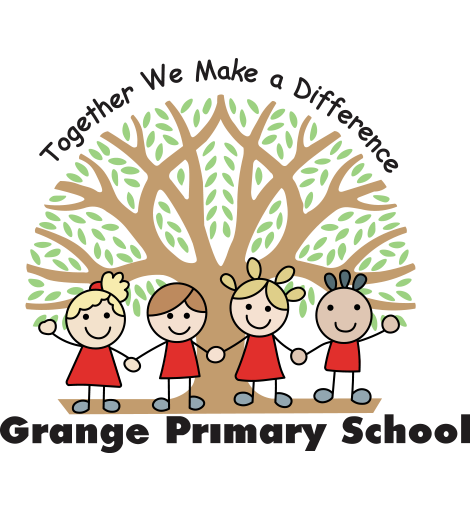Religious Education (RE)

RE Curriculum Overview & Progression inc EYFS 21-22
RE Curriculum Statement
Intent
At Grange Primary School, we follow Lancashire Agreed Syllabus for Religious Education (2021) ‘Searching for Meaning’. This revised syllabus is the legal basis for Religious Education in Lancashire.
It is ambitious for all pupils and outlines the curriculum intent and methods of implementation that will enable all pupils to achieve well and attain high level outcomes by the end of each Key Stage. The syllabus aims to support pupils’ personal search for meaning as they explore what it means to be human. It continues to follow the Lancashire Field of Enquiry model, but also specifies knowledge and skills which build towards clear goals at the end of each key stage. This ensures that the curriculum is progressive, clearly sequenced and suitably ambitious. The syllabus also includes specific advice on effective methods of teaching and assessment. The aim is for teachers to develop the disciplinary knowledge needed to implement the curriculum effectively so that it has a positive impact on pupil achievement.
At the heart of this syllabus is the quest to understand what it is to be human. By learning about religion, we can become more open minded, respectful and achieve greater self-awareness. The skills and attitudes developed though RE can therefore make a significant contribution to promoting British Values and developing greater community cohesion.
Implementation
At Grange Primary School, we believe that it vital for all children to have a broad range of cultural experiences across key faiths. We also design our curriculum so that we reflect the religious nature of the pupils who attend our school and their families. As such, we study Christianity and Islam as our two main faiths and then all children study Hinduism, Sikhism, Judaism and in Year 6 we consider Humanism as an alternative philosophy to faith.
We use our RE syllabus as a vehicle to promote tolerance and respect and it naturally links to the promotion of British Values. Therefore, special visits to these places of worship are also planned into our curriculum. Over the course of a pupil’s life at our primary school, they have the opportunity to visit places of worship across all of the studied faiths.
We also hold a range of religious artefacts in school – always ensuring that they are handled and stored with respect.
At Grange Primary School, we progressively study Christianity as a main faith along with Islam – this reflects the context of our school and links to the study of Abrahamic faiths. Children also study Hinduism, Sikhism and Judaism. In our school, our pupils also study the philosophy of humanism in Year 6. The study of each faith is taught is carefully planned blocks which are sequential over time and detailed on our curriculum overview.
We also follow the Lancashire RE syllabus in EYFS. Children are taught to respect and celebrate each other’s differences by developing an understanding of diversity beyond their immediate family experience. This is taught through the strand ‘People and Communities’ within ‘Understanding the World’ (EYFS Statutory Framework 2021). The knowledge, skills and understanding that should be acquired by the end of the reception year is as follows:
Know some similarities and differences between different religious and cultural communities in this country, drawing on their experiences and what has been read in class. Religious Education can also make an active contribution and support development within other areas of learning and development, in particular:
- Communication and Language (Listening and Speaking).
- Literacy (Comprehension, Word Reading and Writing).
- Personal, Social and Emotional Development (self-regulation, managing self and building relationships).
- Expressive Arts and Design (creating with materials and performing).
- Understanding the World (past and present, the natural world).
At this early stage children are encouraged to follow lines of enquiry, ask and answer questions and discuss and express their ideas. Opportunities to create a calm and reflective space to enable children to consider, discuss and express their Children will study Christianity and compare this with the beliefs and practices of other religions represented in their class, school or local community. Encounters with other religions should be primarily promoted via stories, rhymes, songs and artefacts with specialist vocabulary taught alongside.
To ensure that RE is taught is a way which develops knowledge, content and skills, documents called ‘Pillars of Progression’ are available within the Lancashire Syllabus. This document exemplifies how knowledge and skills are built sequentially and progressively across KS1 and KS2. This document is available on this page.
Impact
Assessment in Religious Education is undertaken as part of the school’s agreed observation, assessment and planning cycle. Evidence can be generated from notes, photographs, mark making, and floor books as well as that contributed through the knowledge of parents, teachers and other adults. Ongoing assessment should inform the planning of further learning opportunities.
Schools report the outcomes of end of KS2 assessments to the Local Authority for monitoring purposes.
Other forms of quality assurance include subject leader actions, which include lesson observations, book looks, termly reports to governors.
Religious education
Schools have to teach RE but parents can withdraw their children for all or part of the lessons. Pupils can choose to withdraw themselves once they’re 18 (Department for Education). If you would like to withdraw your child from RE sessions, you would need to do so in writing to the Headteacher.
